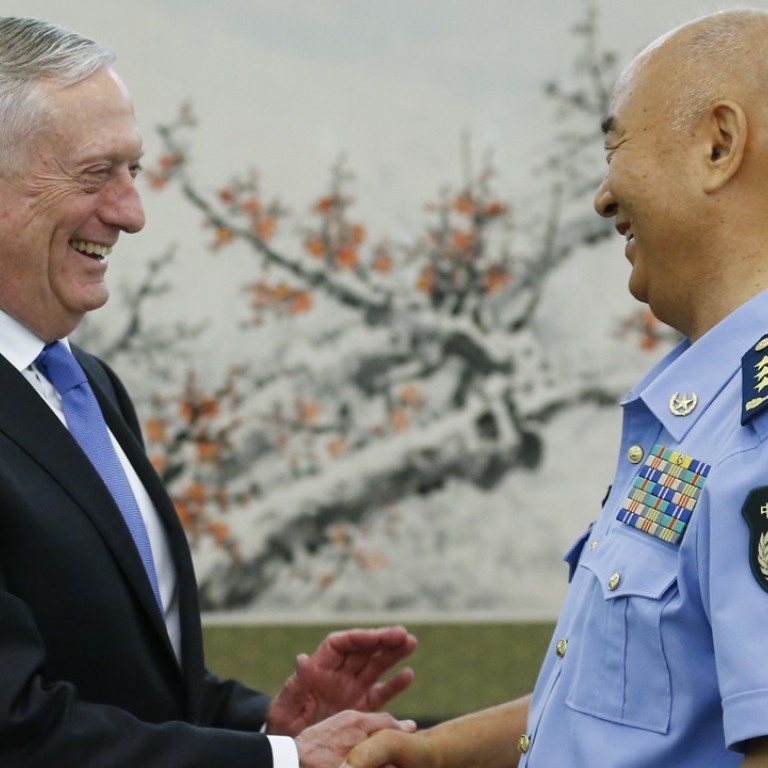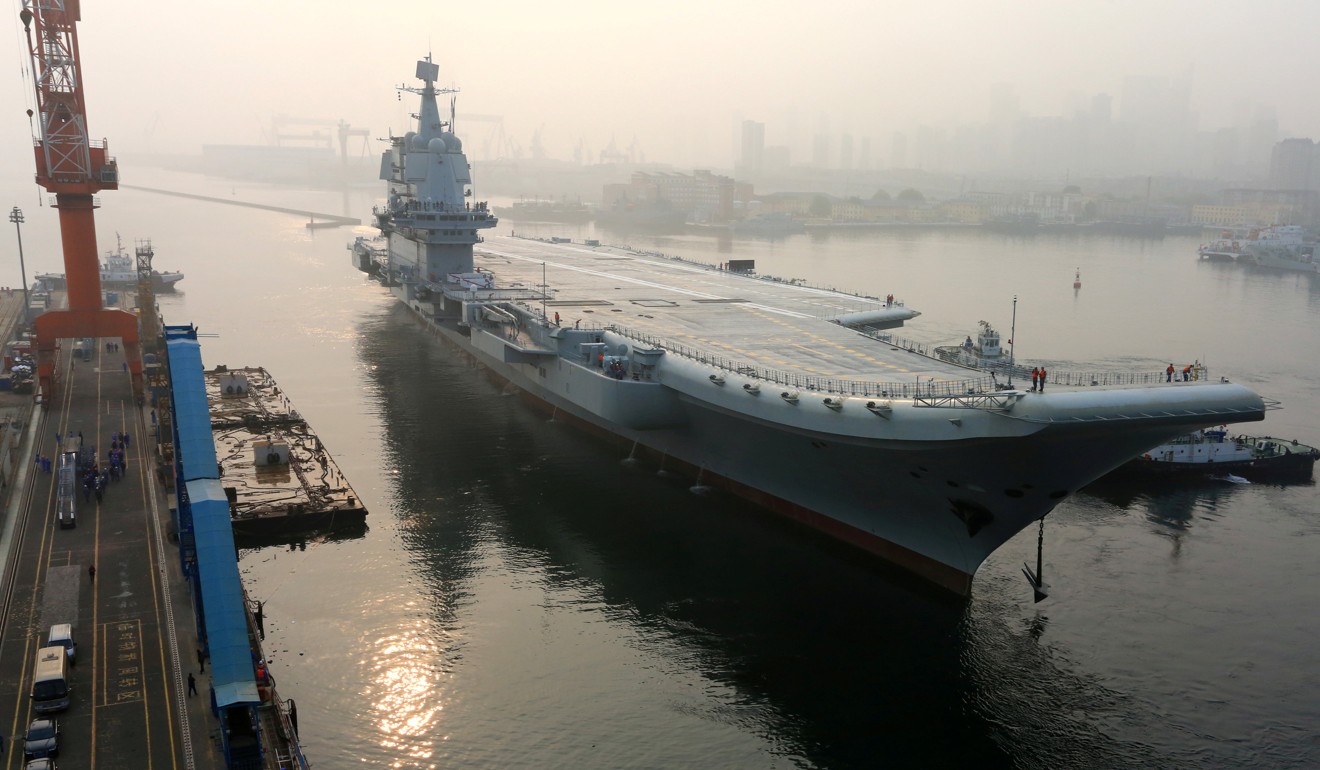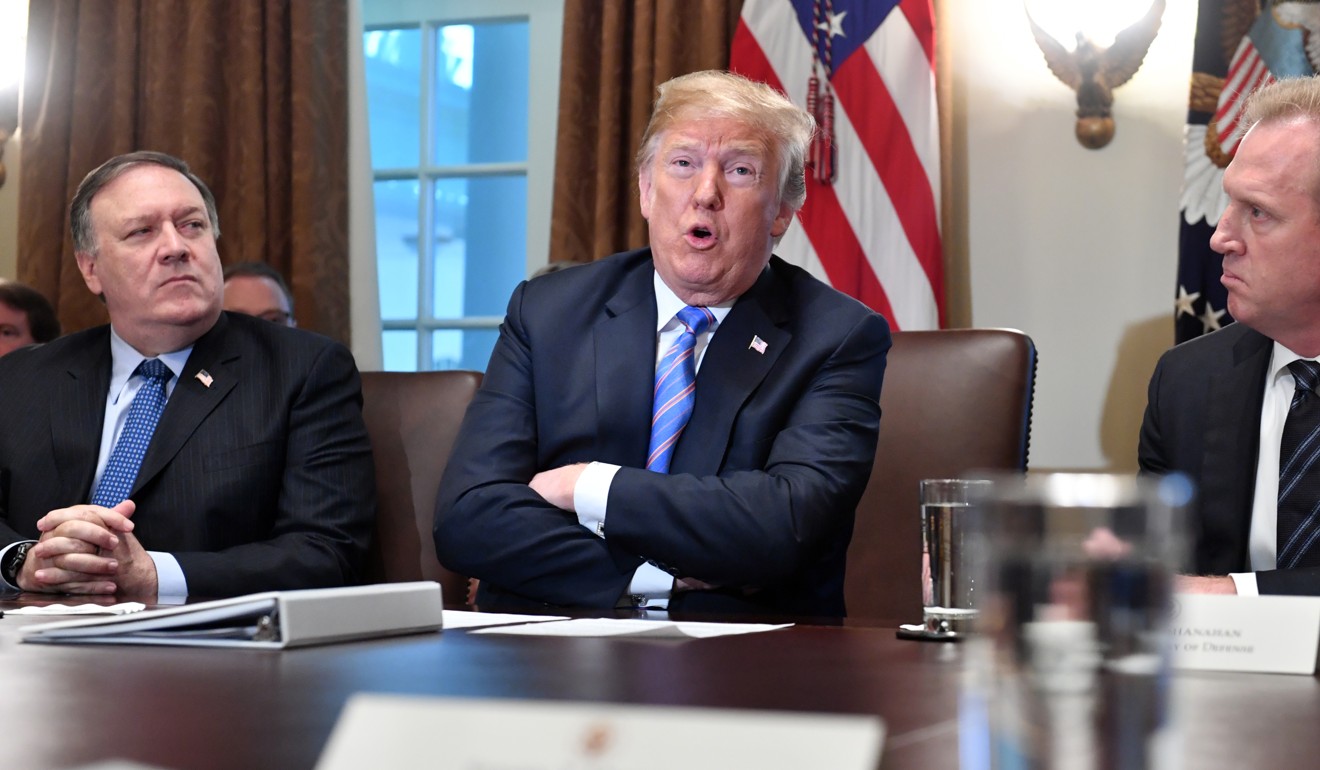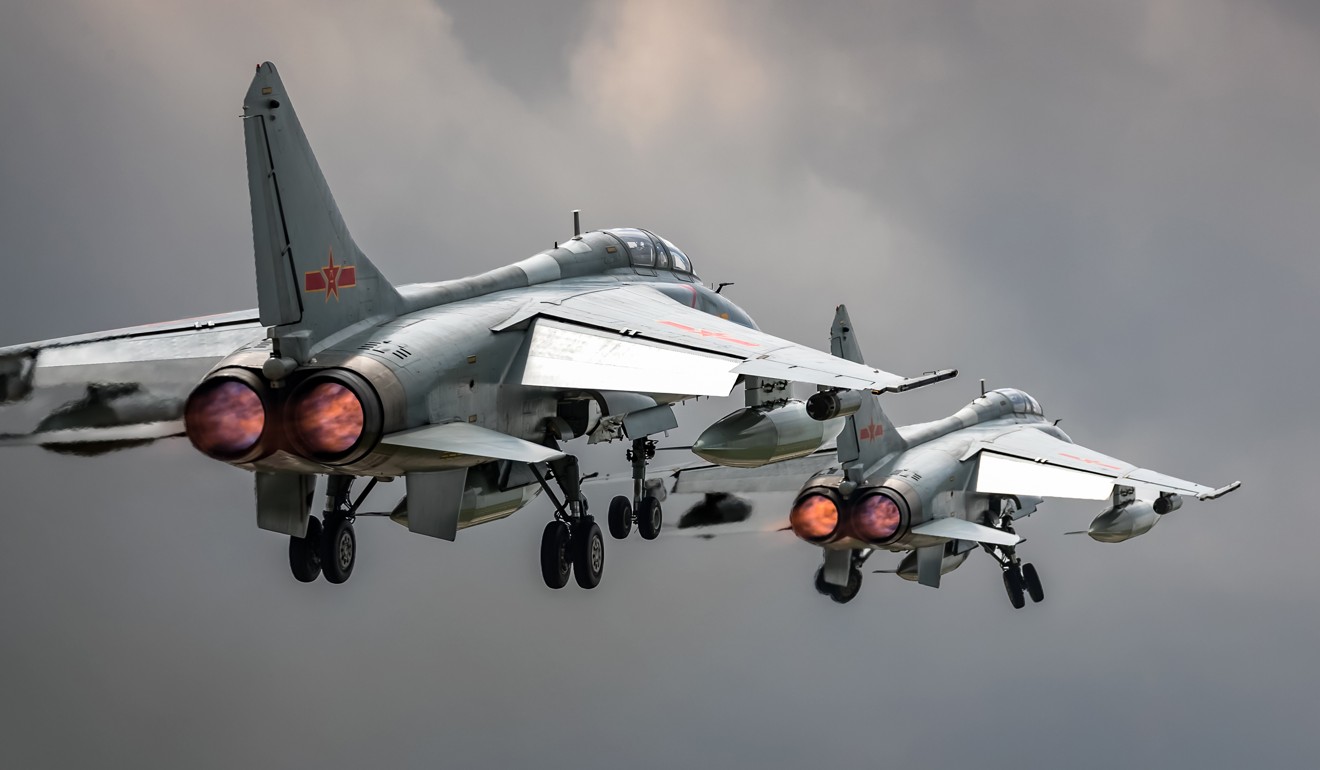
What would the US do if Beijing decided to take Taiwan by force?
Polls show only a minority of Americans would favour US soldiers fighting to defend Taiwan, but a decision by Washington not to intervene in a Taiwan Strait conflict would represent a dramatic shift in US strategy
As China’s soft power proves ineffective, Beijing relies more heavily on coercion to force political unification on Taipei. China will continue in the coming years to enlarge the gap between its total military power and that of Taiwan, but this observation does not get at the heart of the problem Beijing faces.
Are the US and China headed for war over Taiwan?
Beijing might attempt unification through military means other than invading Taiwan, such as capturing smaller islands claimed by Taipei, imposing a blockade of its ports and main airport, launching cyberattacks against its information and communications infrastructure, and cratering parts of the island with missile attacks.

The problem for China is that these methods still rely on the Taipei government choosing to surrender. Historically, governments and societies under attack become more defiant rather than submissive. Judging from the reaction of Taiwan’s people to Japanese colonisation beginning in 1895 and to the imposition of Kuomintang rule beginning in 1945, Taiwan would not be an exception.
For US and China, the real friction over Taiwan is yet to come
The only sure way to compel Taiwan’s surrender would be for PLA soldiers to occupy Taiwan’s major cities. But even as China’s military capabilities improve, the chances of success in an all-out invasion of Taiwan are low – even if the United States did not intervene on Taiwan’s behalf. China would need to ferry its troops, most of them packed into slow-moving and highly visible ships, across the 160km wide Taiwan Strait, where they would be highly vulnerable to attack, and then unload them and huge amounts of ammunition and other supplies while trudging through sand or mud and under heavy fire. China has the capacity to transport only a few tens of thousands of troops at a time. Much of this force would not make it across the strait. Awaiting the survivors would be 180,000 active duty Taiwanese soldiers plus 1.5 million reservists.
If the United States chose to intervene, US aircraft from bases in the region could begin flying missions within hours. China might try to impede this by firing missiles to temporarily knock out runways used by US aircraft, but this would reduce the number of missiles available to hit Taiwan, and also bring Japan’s military forces fully into a war.
Even if it won the military campaign, Beijing would face the daunting prospect of trying to rule a society that was accustomed to democratic governance and would be inveterately hostile towards China for generations to come. Tibet would appear quiescent by comparison.
Taiwan: a pawn in Donald Trump’s plan for US-China battles on anything and everything
An important part of the calculation, of course, is the likely US reaction.
The US government still has strong incentives to prevent China’s invasion of Taiwan. US President Donald Trump has made public statements questioning the value of US alliances in Asia. During the summit with Kim Jong-un in Singapore, Trump revealed a hope that US troops would eventually leave South Korea. But 18 months into his presidency, the administration has not taken steps to disengage from US alliances or to reduce US military forward deployment.

Trump’s senior advisers seem committed not only to maintaining US strategic leadership in the western Pacific Rim, but also taking a more confrontational posture with China, as reflected in the recently published policies on security and defence.
These characterised China as more adversary than partner, a reverse of the Obama administration rhetoric. As a concrete example, US “freedom of navigation operations” in the South China Sea have increased relative to the Obama administration.
What’s behind Beijing’s South China Sea moves – and why US patrols are making things worse
Polls in the United States show only a minority of Americans would favour US military personnel fighting to defend Taiwan. Members of Congress, however, are more supportive. They realise America’s leadership position in the region would be severely if not fatally compromised if the United States stood aside while a large authoritarian state and opponent of the US-sponsored regional order gobbled up a small democracy that has strong historical ties to America.

They believe in the “democratic peace theory”: democracies don’t fight against each other, so democratisation throughout the world increases the space within which no serious threats to US security will arise. They understand that Taiwan is the “unsinkable aircraft carrier” that anchors the first island chain, limiting the geostrategic platform from which China might otherwise attempt to dominate eastern Asia.
China’s strength is in making the West doubt the value of doubt
A decision by Washington not to intervene in a Taiwan Strait conflict in which China appeared to be the aggressor would represent a dramatic shift in US strategy. The overt attempts to politically distance the island from China while Chen Shui-bian was Taiwan’s president from 2000 to 2008 prompted Washington to say it would not necessarily intervene if Taiwan seemed to provoke an attack. US policymakers, however, do not see President Tsai Ing-wen as a provocateur.
The Communist Party’s recent position on Taiwan is counterproductive. Reunifying Taiwan is not necessary for China to be secure and prosperous, as is manifestly obvious. Worse, an obsession with the Taiwan issue could work against other important goals, beginning with successfully managing the difficult but necessary project of economic restructuring. Clearly, Beijing needs a better approach than threatening Taiwan with attack. ■
Denny Roy is a senior fellow at the East-West Center in Honolulu, Hawaii

